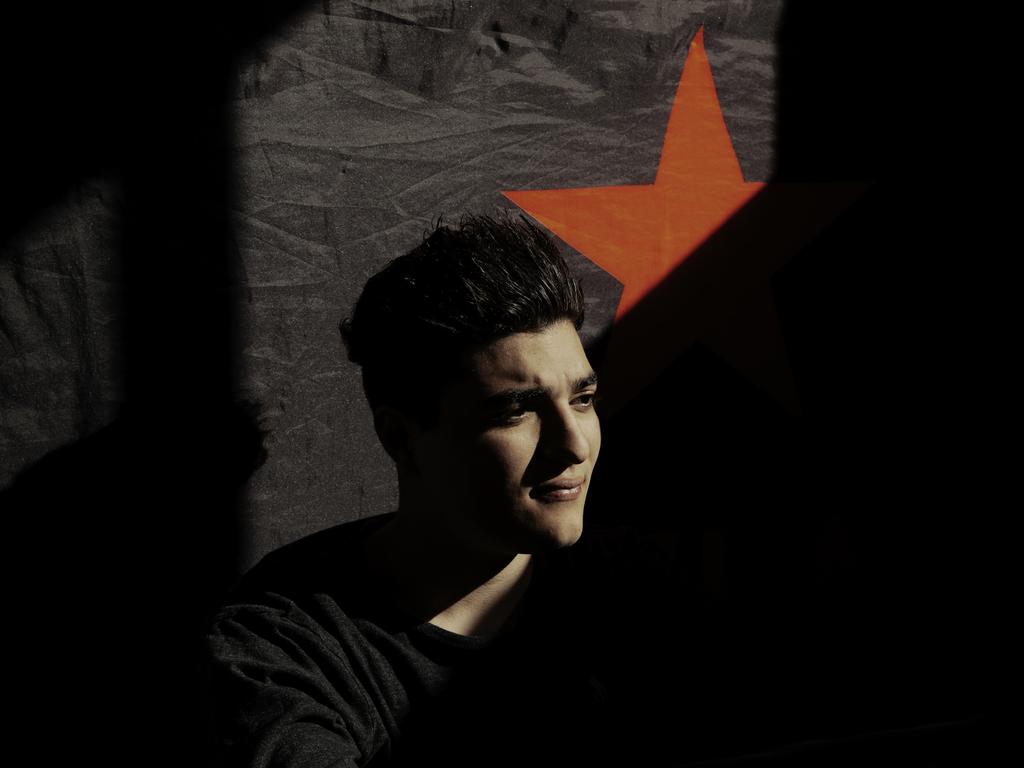
When student protesters took up the cause of Hong Kong democracy last year, they aimed fire at university links with the CCP and campus Confucius Institutes. Many Australian universities host the soft-power academies that have been likened to CCP front organisations. Their official purpose is instruction in Chinese language and culture. But there are numerous examples of the institutes exceeding their remit by venturing boldly into politics and propaganda.
Some universities signed agreements giving the CCP agency, Hanban, control over teaching performance reviews. The Sydney Morning Herald reported last year that in agreements with UQ, Griffith University, La Trobe University and Charles Darwin University, the Hanban asserted control over assessing teacher quality in Confucius Institutes.
UQ students responded to increasing CCP oppression of minority Muslims and Hong Kong democracy activists by staging a protest last July. Pavlou joined some mates for a sit-in. Speaking to The Weekend Australian Magazine, Pavlou portrayed himself as a rather disorganised protester who was unaware a large crowd was forming around his group. It seems unlikely, but protests can get out of hand quickly and from the ground, you cannot observe swelling numbers. Pavlou’s group was set upon by men in dark glasses playing the Chinese national anthem. The chaos that ensued made international news and turned him into something of an overnight sensation.
It is fortunate that Pavlou comes from a long line of Greek freedom fighters because he has made enemies in high places. Greeks and Australians share a love for the underdog and the combined efforts of UQ and the CCP have transformed Pavlou into a free speech martyr. You might expect a university to intervene in defence of an undergraduate facing the incessant whine of CCP outrage and pomposity. But it was impotent when Pavlou was targeted by Xu Jie, who serves as China’s consul general in Brisbane and enjoys academic status as an adjunct professor at UQ.
In April, the university emailed an extensive document to Pavlou that listed allegations of misconduct. Pavlou is represented pro bono by Tony Morris QC, who became a free speech hero after defending another university student cohort punished for exercising free speech. On Friday, the disciplinary panel convened to determine Pavlou’s fate suspended him.
In his 2018 book, Silent Invasion, Clive Hamilton detailed the growing influence of the CCP in Australia and the role universities play in it. He made special mention of UQ vice-chancellor Peter Hoj for being the 2015 recipient of Hanban’s Outstanding Individual of the Year award. Hamilton noted that Hoj served as a senior consultant to it and “boasts of the extensive work done by the Confucius Institute at his own university”.

China’s soft-power influence is being dismantled brick by brick as foreign nations wake up to the CCP threat. In the US, academics were sufficiently concerned about the corrosive effect of the institutes on campus culture that they urged universities to change the terms of agreements or cut ties. The American Association of University Professors warned: “Confucius Institutes function as an arm of the Chinese state and are allowed to ignore academic freedom. Their academic activities are under the supervision of Hanban, a Chinese state agency which is chaired by a member of the Politburo and the vice-premier of the People’s Republic of China.”
Last year, the US barred Confucius Institutes from receiving Department of Defence funding. In Australia, the NSW government shut down a Confucius Institute operating in the Department of Education, noting it would no longer support one-party-state appointees working inside a democratic government.
As soon as they realise making martyrs of free thinkers is bad for business, universities will deduce free speech is a cause worth defending. To bring them to the realisation will require some persuasion because political correctness and managerialism have converged to create a censorious campus culture where intellectual freedom is considered a threat to political power and profit.
To defend free speech on campus, students, parents and alumni must join forces. University management continues to defend punitive action against dissenters even after the law finds them wanting.
James Cook University is appealing against the Brisbane Federal Circuit Court decision that it award geophysicist Peter Ridd more than $1.2m in damages after it dismissed him for criticising the university’s climate change research. Judge Salvatore Vasta said: “Incredibly, the university has not understood the whole concept of intellectual freedom.”
Freedom of thought is the most vital principle of education. Without it, free speech is a hollow virtue. Political censorship invariably begins with the curtailment of words and images. But its ultimate purpose is to put out the light of the mind. The founding father of Chinese communism, Mao Zedong, excelled at depriving dissent of oxygen. He recognised liberalism, with its ethos of enlightened independent thought, as a threat to communist power. He used political violence and social pressure to bring about the death of free thought. When free thinkers refused to surrender, they were hunted down and publicly humiliated. Many were killed. There is no light in Maoist thought or the culture conceived in its abyss.
The Pavlou affair is compelling because it has distilled the complex politics of CCP influence into a story about a fresh-faced young man who dared speak truth to power. The only conclusion Australians will accept is resurrection. Pavlou must rise from the ashes.





An Australian university that suspends a student for protesting against Chinese Communist Party influence is neither Australian nor a university. On Friday, a University of Queensland panel decided to bar student Drew Pavlou until 2022. It prevents the politics student from completing his final year. Thus far, UQ has protected the faceless cowards who made the appalling decision. They are unaccountable to the Australian public that pays their wages. At the time of writing, they had not provided a written explanation for his expulsion. The government cannot sit idly by and allow it.